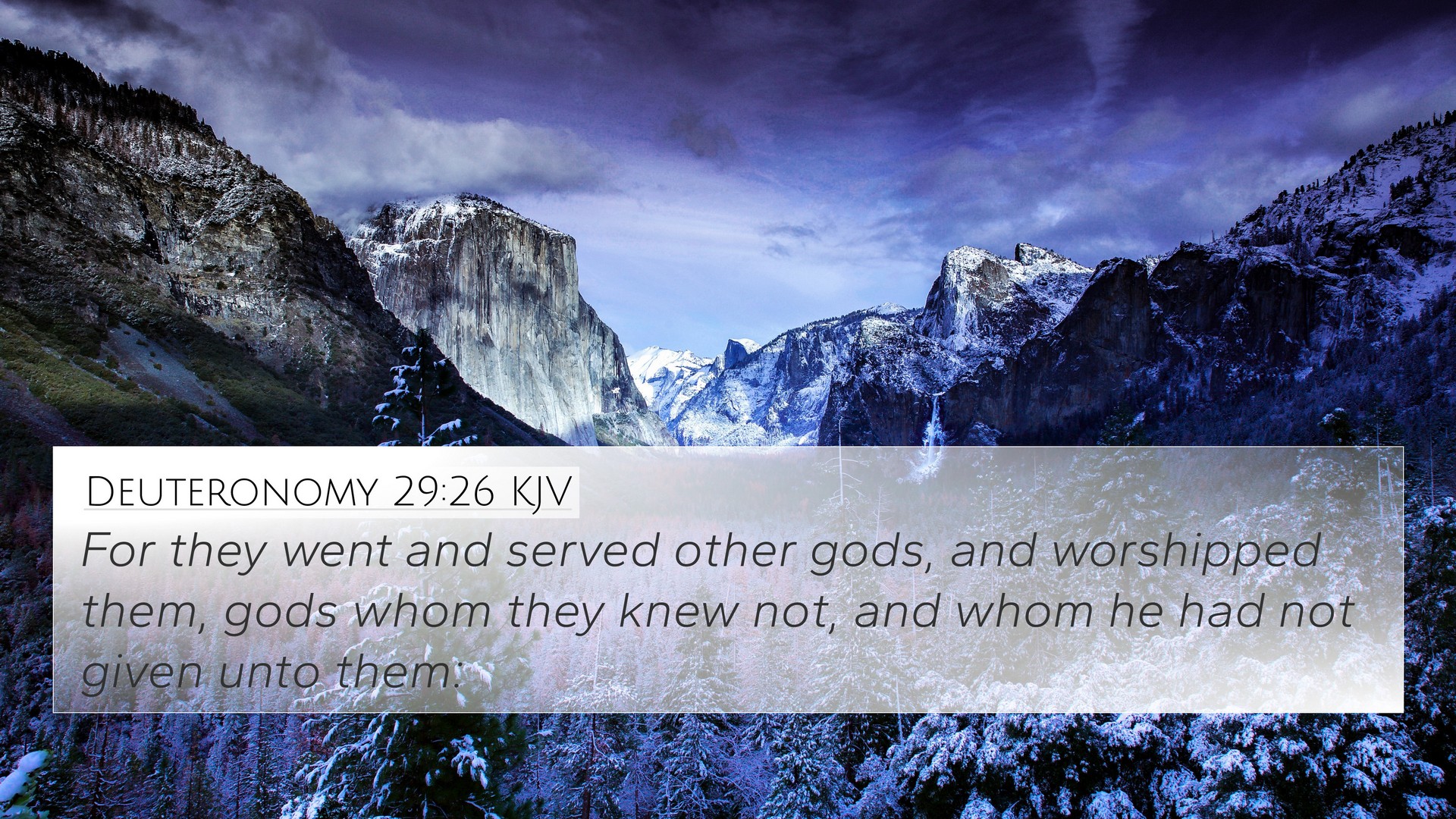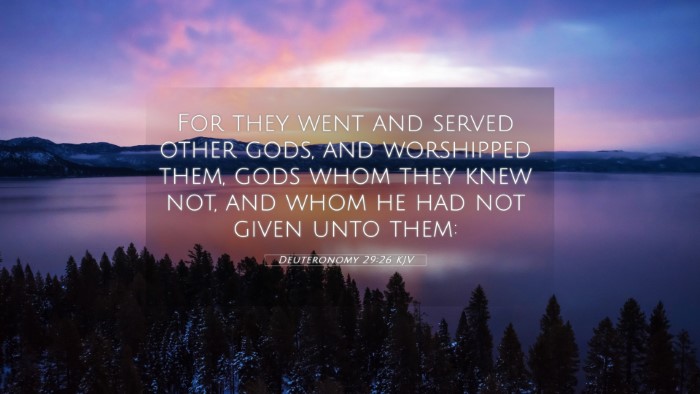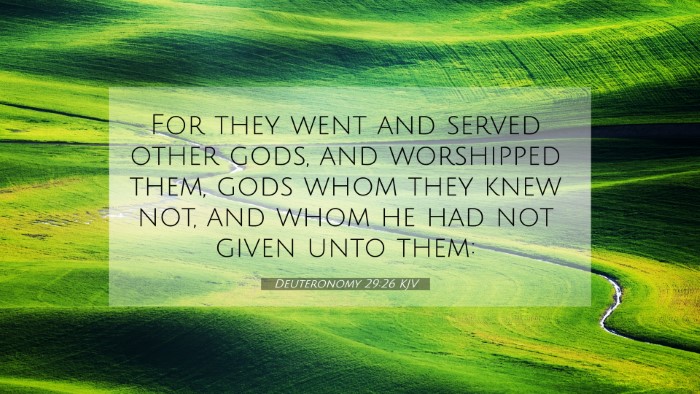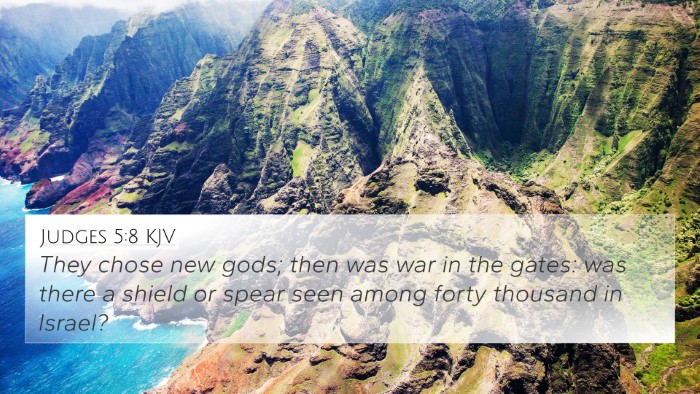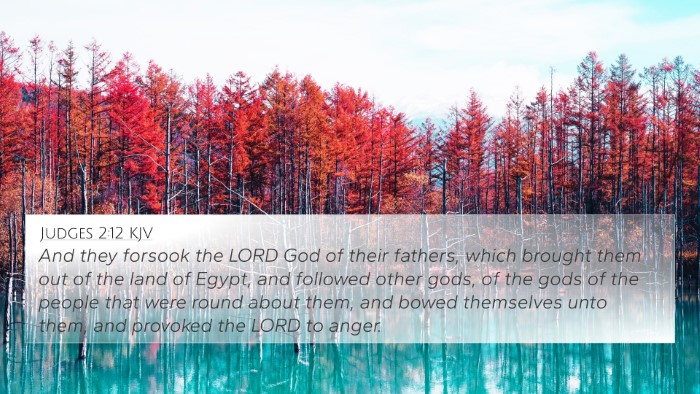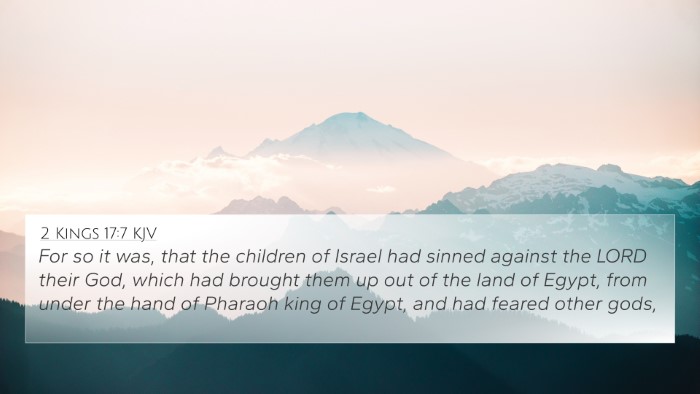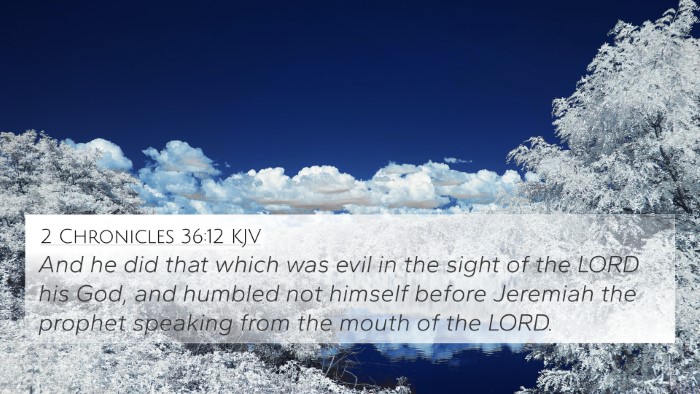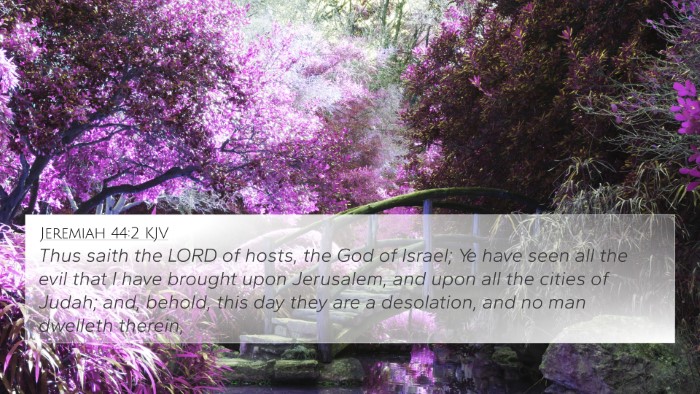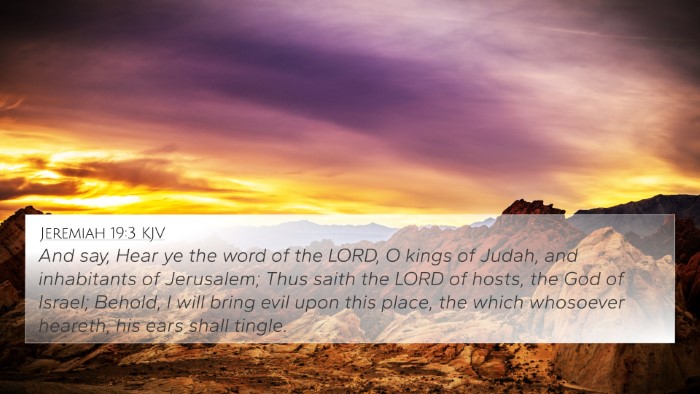Understanding Deuteronomy 29:26
Deuteronomy 29:26: "For they went and served other gods, and worshipped them, gods whom they knew not, and whom he had not given unto them."
This verse illustrates the consequences of turning away from the true God to worship unknown idols, leading to divine judgment and abandonment by God.
Interpretation from Public Domain Commentaries
Matthew Henry: Henry emphasizes the severe admonishments in this chapter, explaining that turning to false gods is indicative of ingratitude towards God. The people are warned that such actions lead to curses and a severing of their covenant relationship with God. Their choice to worship unknown gods signifies a rejection of their heritage, and can result in dire consequences for both individuals and the community.
Albert Barnes: Barnes elaborates on the idea that this verse underscores the folly of idolatry. He notes that the Israelites had more than sufficient knowledge of the true God and His works but chose to forsake Him. This demonstrates a lack of faith and understanding of God's sovereignty and providence. By serving gods who were not given to them, the Israelites not only angered God but also placed their faith in mere fabrications, leading to spiritual desolation.
Adam Clarke: Clarke discusses the historical context of this verse, explaining that the Israelites often found themselves surrounded by nations worshiping various idols. He expresses that the essence of idolatry is a deliberate choice to seek the familiar over the divine. This passage serves as a warning against the dangers of conforming to surrounding cultures rather than adhering to God's commands and knowledge. Clarke suggests that the ignorance of these false gods, which they knew not, reflects a deeper truth about the relationship between God's people and their understanding of Him.
Cross-References for Deuteronomy 29:26
This scripture connects with several key biblical themes and verses:
- Exodus 20:3-5: "You shall have no other gods before me."
- Joshua 24:20: "If you forsake the Lord and serve foreign gods, he will turn and bring disaster upon you."
- Psalm 106:36-38: "They served their idols, which became a snare to them."
- Jeremiah 2:11: "Has a nation ever changed its gods? Yet they are not gods at all."
- Romans 1:25: "They exchanged the truth of God for a lie, and worshiped and served created things rather than the Creator."
- 1 Corinthians 10:20: "The sacrifices of pagans are offered to demons, not to God."
- Colossians 3:5: "Put to death, therefore, whatever belongs to your earthly nature: sexual immorality, impurity, lust, evil desires, and greed, which is idolatry."
Thematic Connections
The themes of idolatry, divine judgment, and covenant faithfulness run throughout the Bible, connecting Deuteronomy 29:26 with various other passages:
- Idolatry and Divine Judgment: The narrative serves as a reminder of the consequences of idolatry seen throughout both the Old and New Testaments, echoing the sentiments found in multiple prophetic writings.
- Covenant Loyalty: This verse ties back to the theme of loyalty to God as presented in the covenants made with His people, contrasting with their propensity to stray.
Applications and Reflections
Reflecting upon Deuteronomy 29:26 within the broader context of scripture encourages believers to examine their lives for potential idols, both overt and subtle. The reflection on this verse offers a chance to prioritize faithfulness to God amid societal pressure to conform. As noted in various commentaries, the repercussions of straying from God serve as a powerful reminder of His desire for undivided worship.
Using Tools for Bible Cross-Referencing
Utilizing tools for Bible cross-referencing can aid in drawing connections between verses. Popular methods include:
- Bible Concordance: Explore keywords and themes found in the Bible to draw meaningful connections.
- Cross-Reference Guides: Use these guides to locate similar verses or themes across different scripture passages.
- Cross-Referencing Bible Study Methods: Engage with study methods that underline thematic ties throughout the Bible text.
Conclusion
Deuteronomy 29:26 serves as a poignant reminder of the importance of faithfulness in worship, illustrating the grave consequences of idolatry. Understanding this verse through the lenses of multiple commentaries enhances its meaning and reveals its interconnectedness with the greater biblical narrative. By employing cross-referencing techniques, believers can deepen their spiritual insights and gain a richer understanding of God's message across scripture.
